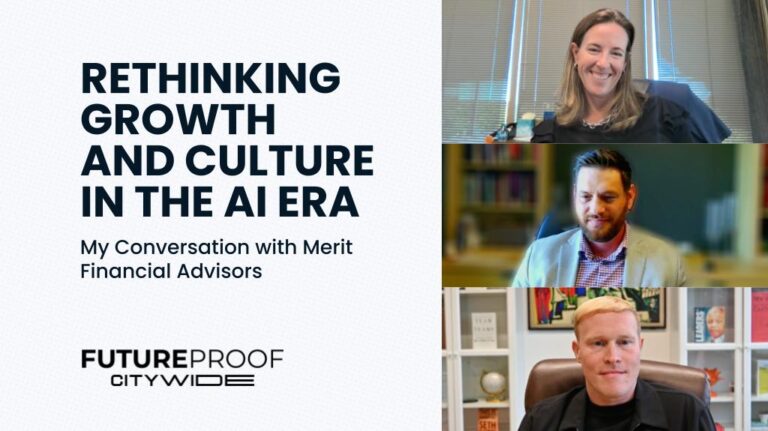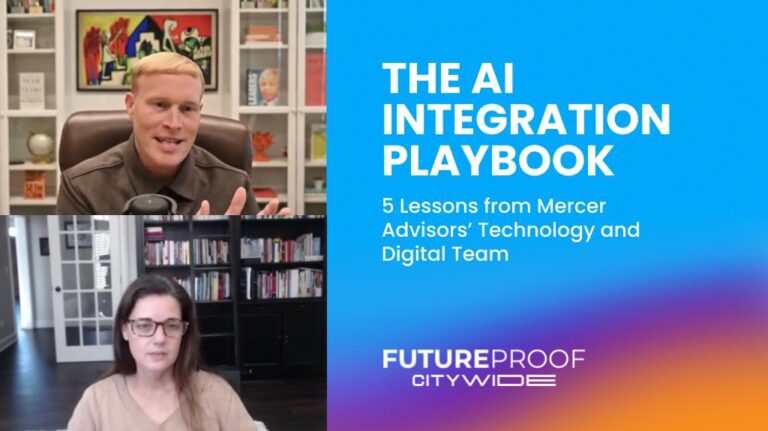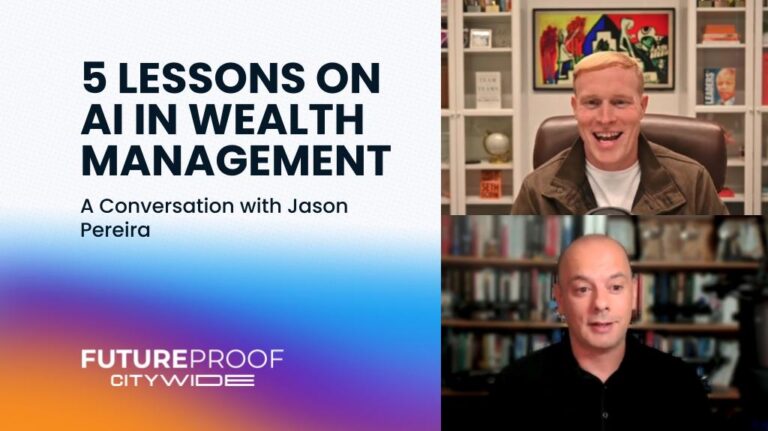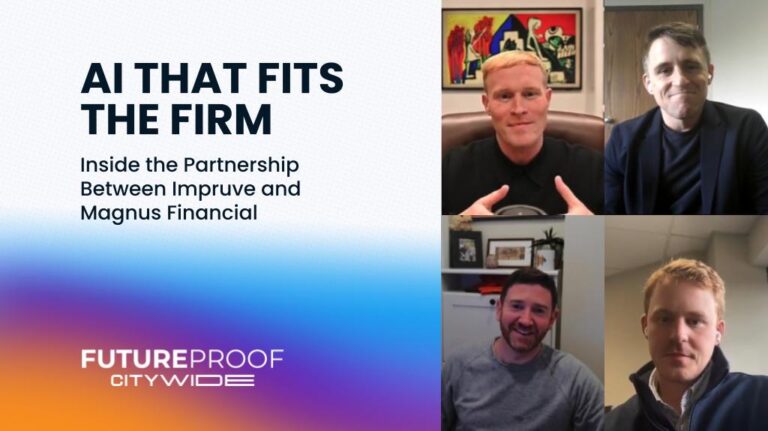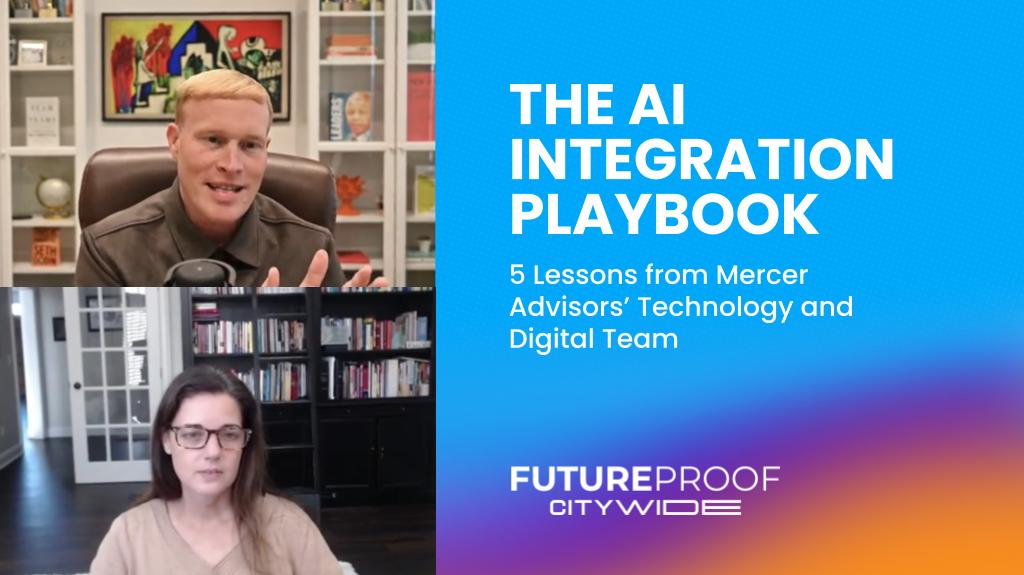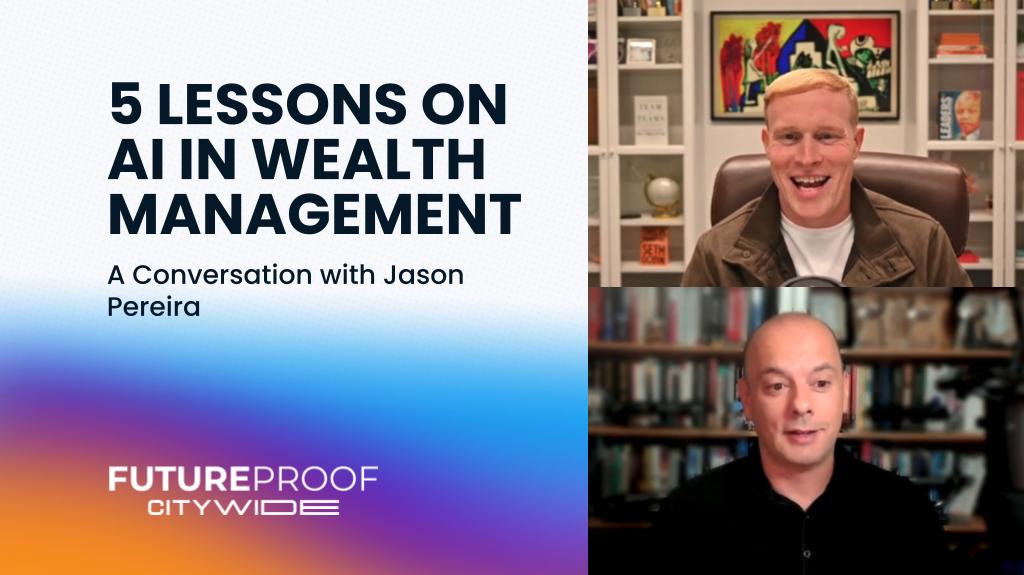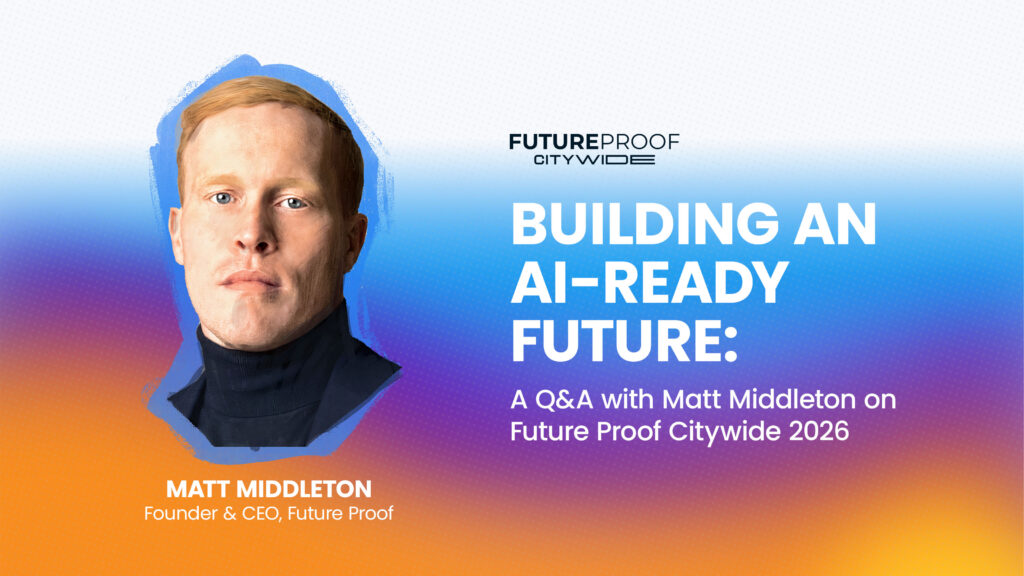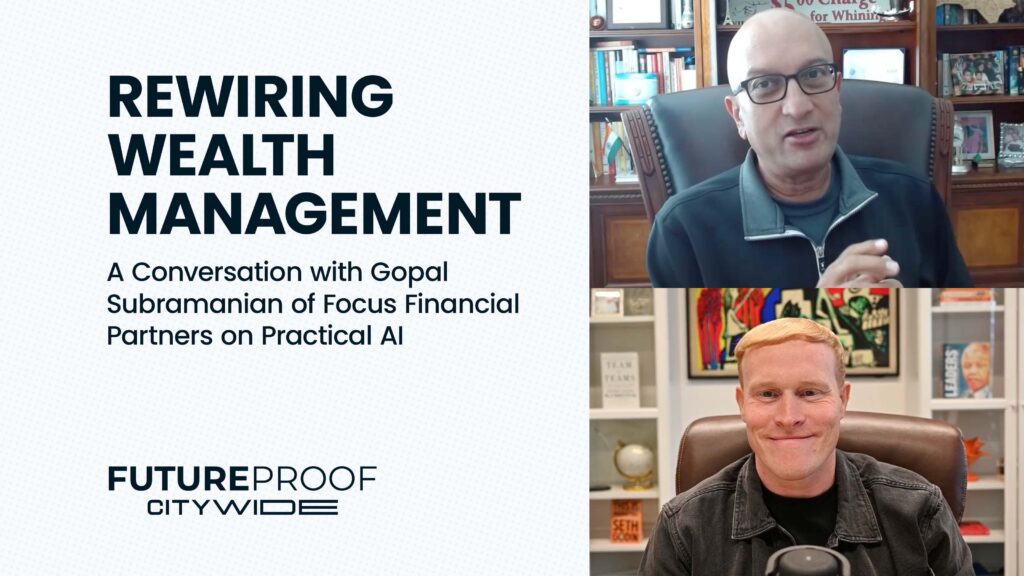As we build the program for Future Proof Citywide 2026 (March 8-11, Miami Beach, FL), I’ve been spending time with some of the most forward-thinking leaders in wealth management to understand how AI is really being applied inside firms, not as a buzzword, but as a lever for growth, efficiency, and transformation.
Earlier this week, I spoke with Kay Lynn Mayhue, President, and Brian Green, Chief Product Officer of Merit Financial Advisors, a national, independent RIA managing $10.6 billion in assets across 141 offices in 20 states. Founded in 2007, Merit serves individuals, families, and institutions with a focus on financial planning, portfolio management, and education, and has become one of the fastest-growing and most acquisition-active firms in wealth management (source: FINTRX).
Kay Lynn brings more than two decades of experience to her role, holding the CFP®, AEP®, and RFC® designations. She’s built a reputation as one of the industry’s leading female executives, having led dozens of successful mergers and integrations that have expanded Merit’s footprint and reinforced its culture of growth and collaboration.
Brian, who previously served as Executive Vice President and Managing Operating Principal before becoming Chief Product Officer, now leads the firm’s product, technology, and innovation strategy. He’s focused on modernizing Merit’s operating model and integrating AI-driven tools that enhance both advisor and client experiences.
The conversation was a masterclass in how to approach AI not just as a technology, but as a cultural and strategic shift. What stood out most was how naturally Merit has integrated AI into the fabric of how they operate, across M&A, HR, compliance, and client experience, while staying grounded in what makes the business human.
Culture Before Code
One of the first things Kay Lynn shared was a story about Merit’s general counsel. When he joined the firm, his first move wasn’t to hire a team or build a complex system, it was to run 50 past M&A transactions through an AI tool to understand their history, identify flex points, and find patterns in deal terms. In a matter of hours, he gained insights that would’ve taken weeks to compile manually.
That story captures the shift happening at Merit. AI isn’t a “project.” It’s part of how they work, from deal analysis to recruiting, learning, and development. Even job descriptions are being crafted with AI assistance to better reflect the firm’s needs and culture.
As Kay Lynn put it, “If you don’t address AI in your culture, you’re going to be cut off at the knees.” That means recognizing early adopters, skeptics, and everyone in between, and shaping a shared mindset around how AI is used at Merit. It’s not about replacing people; it’s about equipping them to work smarter.
The Power of Practical Use Cases
When I asked for examples of where AI was driving real impact, the conversation turned to a story that’s becoming increasingly common in the industry: AI-powered notetaking.
An advisor at Merit lost a key team member who managed meeting prep and documentation for a large client book. Instead of scrambling to hire immediately, they implemented an AI notetaking tool (in their case, Jump), and recovered 80% of that person’s workload overnight.
That single use case demonstrates how AI can preserve continuity, create breathing room, and improve client service all at once. But as Brian pointed out, the key isn’t the tool itself, it’s how you define the problem before you deploy it.
Too many firms, he said, fall into the trap of adopting AI “for technology’s sake.” Instead, Merit starts with clear use cases and measurable outcomes, then layers in tools that fit their broader tech and compliance strategy.
AI Steering Committees and the “Experience Stack”
One of the smartest things Merit has done is establish an AI Steering Committee. This group doesn’t just evaluate vendors, it looks at how AI impacts every part of the business, from advisor productivity to operations and compliance.
Brian described it well: “If you can’t answer how this tool improves the experience across the entire firm, not just one department, then you’re dealing with a point solution, not a strategy.”
That’s a perspective I wish more firms would adopt. The wealth management tech stack has been expanding for years, yet few firms are connecting those layers around a unified data and experience model. Merit is doing that by aligning AI initiatives with their leadership, compliance, and operations teams from the start, ensuring adoption, not just implementation.
Top-Down Vision, Bottom-Up Innovation
When I asked whether their AI strategy was top-down or bottom-up, Kay Lynn made an important point. Merit is a “company of companies,” a platform built through dozens of M&A integrations. That means its strength comes from balancing leadership vision with local autonomy.
Their leadership team sets the tone and provides the framework, what Kay Lynn calls the “sketch,” while advisors and teams across the firm help color it in. It’s collaborative, not prescriptive.
They’re also moving fast. Merit is already exploring the addition of a dedicated AI specialist, someone who “lives and breathes AI” and can connect innovation with execution across the firm. As Kay Lynn said, this isn’t a five-year plan, “it’s ten weeks away.”
Build, Buy, or Both?
The “build vs. buy” debate comes up in nearly every conversation I have about AI. Brian’s take was pragmatic: if it’s not a differentiator, buy it. If it’s core to your competitive edge, build it.
He believes the broader fintech ecosystem, the increasingly crowded Kitces map, will inevitably shrink as AI accelerates consolidation. “There are only so many notetakers the industry can support,” he said. But that doesn’t mean innovation will slow down. Instead, AI will make it easier for firms like Merit to develop lightweight, custom solutions on top of their existing infrastructure.
Kay Lynn added that one of Merit’s guiding principles is nimbleness. They’ve invested in their own data warehouse so they can stay flexible, integrate best-of-breed tools, and evolve as technology does. That’s the mindset of an AI-ready firm, not locked into legacy systems, but intentional about where and how they innovate.
M&A and the Future of Growth
We ended our conversation on a forward-looking note: how AI will influence M&A strategy in the years ahead.
Kay Lynn believes the next wave of growth in wealth management will be fueled by firms that figure out how to use AI to drive organic growth, to reach clients more effectively, onboard faster, and deepen relationships.
At the same time, Merit’s own AI-first approach has become a differentiator in attracting firms to join their platform. Many of the next-generation leaders they’re talking to, often founders in their 30s and 40s, aren’t looking to “sell” in the traditional sense. They’re looking for a partner who shares their mindset and has already built the infrastructure they know they’ll need to compete in the AI era.
Why These Conversations Matter
What Merit Financial Advisors is building is exactly what we want to spotlight at Future Proof Citywide 2026, not just technology adoption, but leadership in action. It’s not a tech event for tech folks. It’s an AI event for everyone.
AI is changing the way firms operate, the way advisors grow, and the way clients experience financial advice. But as Merit’s story shows, success isn’t about coding or compliance, it’s about culture, clarity, and conviction.
These are the stories that will define the next era of finance. And March 8-11, 2026, in Miami Beach, they’ll come to life as more than 4,000 leaders from across the financial ecosystem gather, spanning RIAs, asset managers, fintechs, banks, and institutional allocators. From the executive suite to investment research, technology, product, growth, and operations, this is where the people shaping what’s next in finance come together to connect, collaborate, and lead.
Don’t miss your chance to be part of the largest AI-native community in finance. Experience hands-on learning, real conversations, and meaningful connections that move the industry forward. Register now.
Author
Matt Middleton
Founder & CEO, Future Proof
Matt Middleton is the founder and CEO of Future Proof, the company behind the world’s largest AI-native finance event, Future Proof Citywide. He leads the vision for building community-driven experiences that connect the most forward-thinking investors, advisors, technologists, and creators redefining financial services.
Disclaimer: This article was written by me … with the help of AI (ChatGPT 5 to be specific). If we’re building an event about how AI is transforming finance, we’d be hypocrites not to use it ourselves. At Future Proof, we’re testing and deploying AI at every stage of the business: from how we research and write, to how we design, plan, and deliver events. Consider this both an experiment and a preview of what’s to come.

